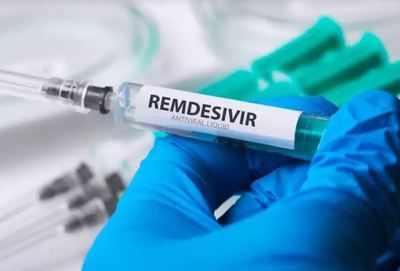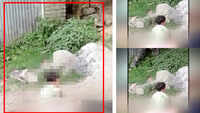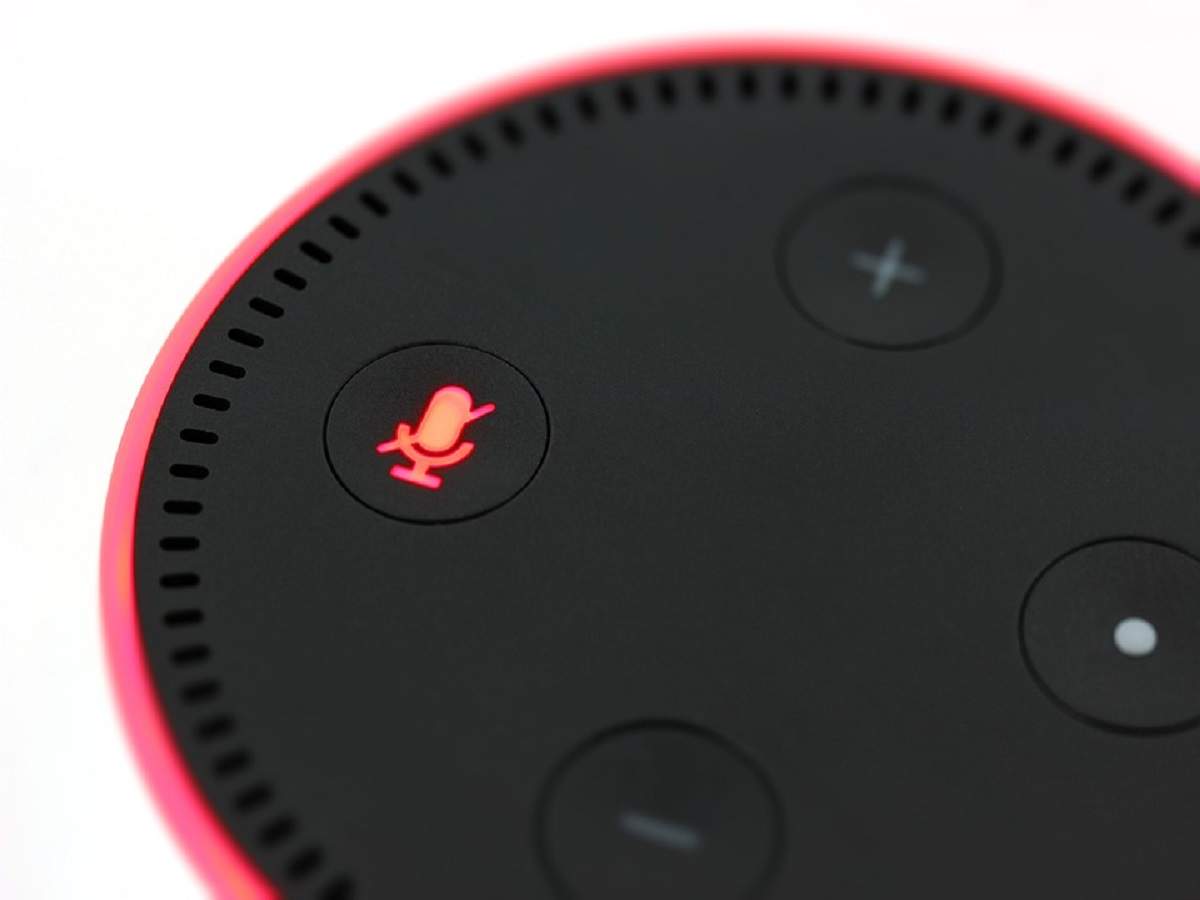
WASHINGTON: Consistent with its "America First" approach, the United States, the top global hotspot for coronavirus pandemic, has cornered virtually all the stocks for the next three months of Remdesivir, the drug that has been shown to mitigate effects of Covid-19.
Under terms of the deal, the US has secured more than 500,000 treatment courses of the drug for American hospitals through September. This represents 100 percent of the California-based drug-maker Gilead’s projected production for July (94,200 treatment courses), 90 percent of production in August (174,900 treatment courses), and 90 percent of production in September (232,800 treatment courses), leaving very little for rest of the world for the next three months.
US officials made no effort to conceal their satisfaction, even boasting of Washington’s success in snagging the medication for Americans as Europeans and rest of the world fumed over what they see as a protective if not predatory move. “President Trump has struck an amazing deal to ensure Americans have access to the first authorized therapeutic for COVID-19,” US Health and Human Services Secretary Alex Azar said. “To the extent possible, we want to ensure that any American patient who needs remdesivir can get it.”
Remdesivir, the first drug approved by licensing authorities in the US to treat Covid-19, has shown moderate success in helping people recover faster from the disease. But this did not appear to deter its aggressive acquisition by the Trump administration, which is under pressure- and international ridicule- to contain the pandemic that is getting out of hand.
“The Trump Administration is doing everything in our power to learn more about life-saving therapeutics for COVID-19 and secure access to these options for the American people,” secretary Azar said.
Critics though see this as a continuation of the America First policy that President Trump has openly professed even before the pandemic. The U.S tried to buy out a German company that was seen as a frontrunner for coming up with a vaccine and later insisted that it has first rights to a vaccine from French manufacturer Sanofi if it works, because it has taken the investment risk.
The Europeans, Canadians, and others don’t see it that way, preferring a collaborative approach amid fears that when there is eventually a vaccine that works, the US will corner the supplies. Criticism of the US policy came from Britain, Germany, Italy, Canada, and Australia, among others.
The Trump administration though is under pressure at home as the pandemic has begun surging again in several states, notably Florida and Texas, which took a chancy approach to reopening for business. The country’s leading infectious disease expert Dr Anthony Fauci warned on Tuesday that the US could see over 100,000 Covid-19 cases a day if it did not reinforce mitigation measures, even as several states reversed their re-opening goals, and Republican leaders, including vice-president Mike Pence, reluctantly accepted that using masks- which President Trump has disdained- made sense.
The European Union meanwhile has closed the door in the face of the American travelers because of Washington's failure to flatten the curve, whose upward surge is now heading towards three million cases, by far the highest in the world, with nearly 130,000 deaths, also the highest.
Even in the US, the eagerness to embrace remdesivir was greeted sceptically in some quarters. Several critics recalled the exuberance with which President Trump promoted hydroxychloroquine- which eventually proved a dud – and pointed out that Dexamethasone, a cheap steroid that has been around for decades and costs a fraction of remdesivir, is also proven to reduce the death rate among hospitalized patients. The US will be paying $3200 for a course of remdesivir.
There is also talk in medical and pharma circles that eventually generic versions of the drug could be bought from countries such as India which do not recognize the patent. A pharma company in Bangladesh is already making generic versions of the drug.
Under terms of the deal, the US has secured more than 500,000 treatment courses of the drug for American hospitals through September. This represents 100 percent of the California-based drug-maker Gilead’s projected production for July (94,200 treatment courses), 90 percent of production in August (174,900 treatment courses), and 90 percent of production in September (232,800 treatment courses), leaving very little for rest of the world for the next three months.
US officials made no effort to conceal their satisfaction, even boasting of Washington’s success in snagging the medication for Americans as Europeans and rest of the world fumed over what they see as a protective if not predatory move. “President Trump has struck an amazing deal to ensure Americans have access to the first authorized therapeutic for COVID-19,” US Health and Human Services Secretary Alex Azar said. “To the extent possible, we want to ensure that any American patient who needs remdesivir can get it.”
Remdesivir, the first drug approved by licensing authorities in the US to treat Covid-19, has shown moderate success in helping people recover faster from the disease. But this did not appear to deter its aggressive acquisition by the Trump administration, which is under pressure- and international ridicule- to contain the pandemic that is getting out of hand.
“The Trump Administration is doing everything in our power to learn more about life-saving therapeutics for COVID-19 and secure access to these options for the American people,” secretary Azar said.
Critics though see this as a continuation of the America First policy that President Trump has openly professed even before the pandemic. The U.S tried to buy out a German company that was seen as a frontrunner for coming up with a vaccine and later insisted that it has first rights to a vaccine from French manufacturer Sanofi if it works, because it has taken the investment risk.
The Europeans, Canadians, and others don’t see it that way, preferring a collaborative approach amid fears that when there is eventually a vaccine that works, the US will corner the supplies. Criticism of the US policy came from Britain, Germany, Italy, Canada, and Australia, among others.
The Trump administration though is under pressure at home as the pandemic has begun surging again in several states, notably Florida and Texas, which took a chancy approach to reopening for business. The country’s leading infectious disease expert Dr Anthony Fauci warned on Tuesday that the US could see over 100,000 Covid-19 cases a day if it did not reinforce mitigation measures, even as several states reversed their re-opening goals, and Republican leaders, including vice-president Mike Pence, reluctantly accepted that using masks- which President Trump has disdained- made sense.
The European Union meanwhile has closed the door in the face of the American travelers because of Washington's failure to flatten the curve, whose upward surge is now heading towards three million cases, by far the highest in the world, with nearly 130,000 deaths, also the highest.
Even in the US, the eagerness to embrace remdesivir was greeted sceptically in some quarters. Several critics recalled the exuberance with which President Trump promoted hydroxychloroquine- which eventually proved a dud – and pointed out that Dexamethasone, a cheap steroid that has been around for decades and costs a fraction of remdesivir, is also proven to reduce the death rate among hospitalized patients. The US will be paying $3200 for a course of remdesivir.
There is also talk in medical and pharma circles that eventually generic versions of the drug could be bought from countries such as India which do not recognize the patent. A pharma company in Bangladesh is already making generic versions of the drug.
Download
The Times of India News App for Latest World News

Coronavirus outbreak
Trending Topics
LATEST VIDEOS
More from TOI
Navbharat Times
Featured Today in Travel
Get the app









